Researchers at the University of Cambridge have developed a novel computer memory design that could boost performance using less energy.
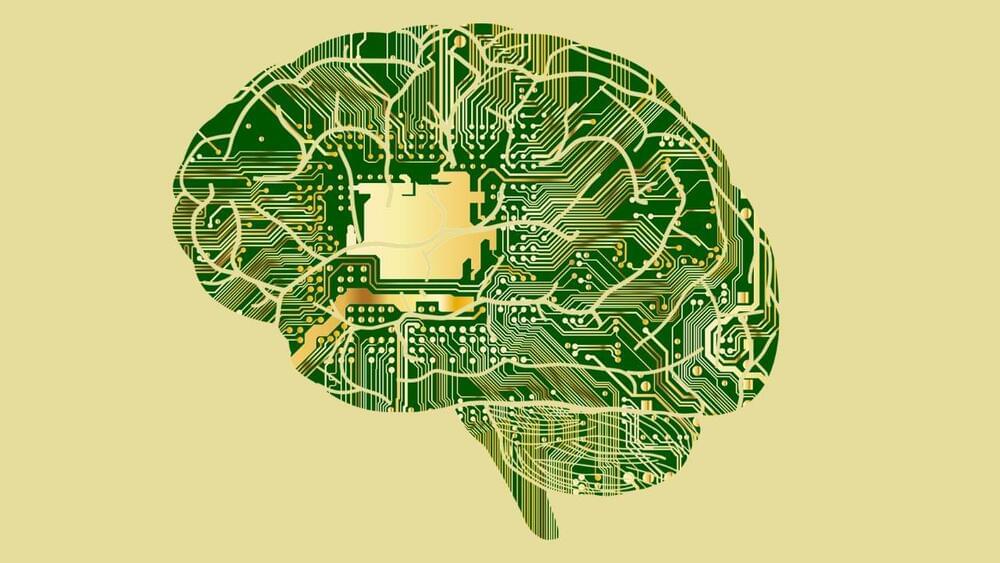

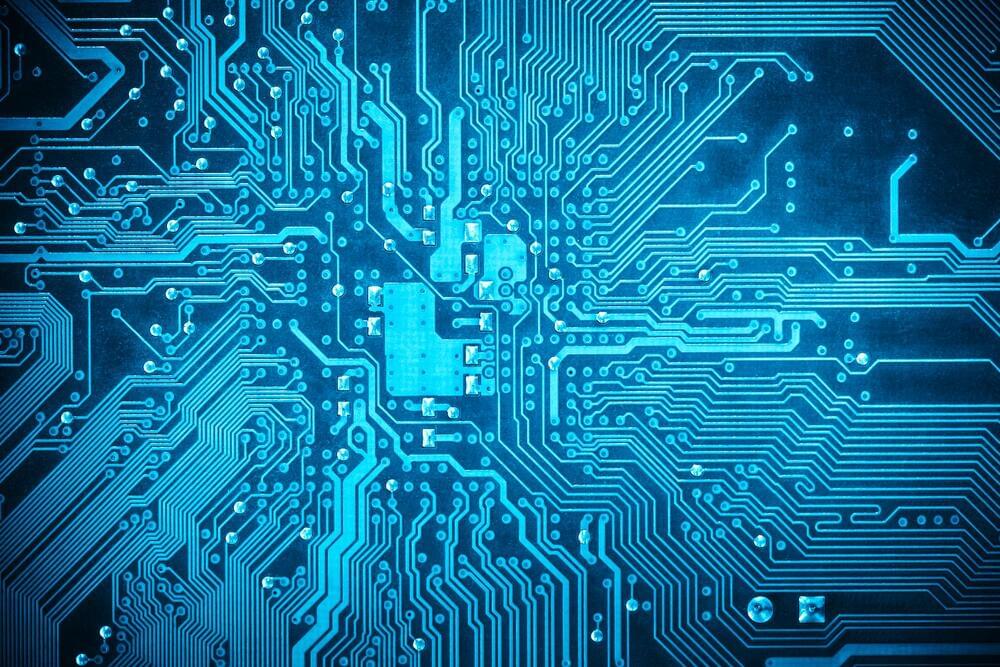
Cambridge scientists have developed a new prototype for computer memory that could make for faster chips that could hold up to 100 times more data. The system is made up of barium bridges between films of a disordered material.
As powerful as current computer technology can be, there are a few hard limits to it. Data is encoded into just two states – one or zero. And this data is stored and processed in different parts of a computer system, so it needs to be shuttled back and forth, which consumes energy and time.
But an emerging form of computer memory, known as resistive switching memory, is designed to be far more efficient. Rather than flipping a bit of information into one of two possible states, this new kind of memory can create a continuous range of states. This is done by applying an electrical current to certain types of materials, which causes their electrical resistance to become either stronger or weaker. A broad spectrum of these slight differences in electrical resistance creates a series of possible states to store data.

No matter the need, these tiny PCs are here to serve. I’ve used many small form factor PCs and most of what I’ve used pales in comparison to the Xulu XR1 Pro. This device is not only the smallest of the tiny PCs I’ve tried, but it’s also the most powerful.
The device itself measures a scant 3.5 × 3.5 inches and is only 2.5 inches tall, making it the smallest AMD Ryzen 7-powered PC ever built. Yes, it’s tiny. But it also offers six USB ports, one USB Type C port, two HDMI ports, and a headphone jack.
As far as price is concerned, the Xulu XR1 Pro will start at around $299 and max out at around $399. So not only does this tiny machine punch above its weight, but it’s also at a price point that makes it even more appealing. Having an AMD Ryzen 7 desktop machine at that price is a bargain…no matter the size.
For such a tiny computer, the Xulu XR1 Pro is a remarkably powerful machine that can serve as a desktop when space is very limited.
Year 2013 Basically they found out water is quantum which could then be turned into a water quantum computer.
Water is vital to life as we know it, but there is still a great deal unknown when it comes to correctly modeling its properties. Now researchers have discovered room-temperature water may be even more bizarre than once suspected — quantum physics suggest its hydrogen atoms can travel surprisingly farther than before thought, report findings detailed in the Proceedings of the National Academy of Sciences.
Water is just made of two hydrogen atoms and an oxygen atom, but despite its apparent simplicity, liquid water displays a remarkable number of unusual properties, such as how it decreases in density upon freezing, and the existence of some 19 different forms of ice. Scientists traditionally ascribe water’s peculiar behavior to the hydrogen bond. Water is polar — partial electric charges separate within the molecule, leading to slightly positively charged hydrogen ends and a negatively charged oxygen middle. As such, the hydrogens in one water molecule can get attracted to the oxygen in another, a hydrogen bond that can help explain why water has such a high boiling point, for example.
All of water’s anomalies, together with its unquestionably vital role in climate and life on Earth, have led to intense research around the globe, but still much remains unknown about it. To shed light on water’s behavior, materials scientist Michele Ceriotti at the University of Oxford in England and his colleagues modeled how the atomic nuclei of water’s hydrogen might behave in a quantum way — that is, not like points as the above explanation of hydrogen bonding from classical physics would suggest, but as more delocalized, cloud-like objects.
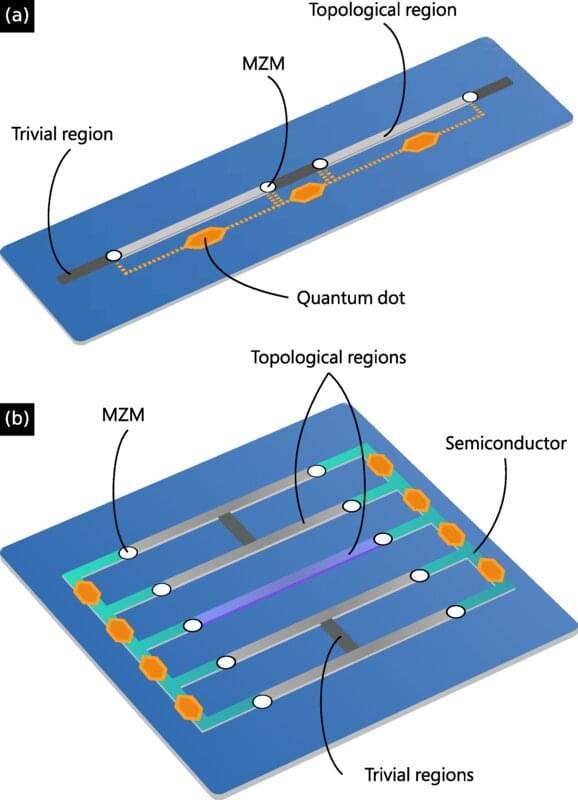
A team of researchers at Microsoft Quantum has reportedly achieved a first milestone toward creating a reliable and practical quantum computer. In their paper, published in the journal Physical Review B, the group describes the milestone and their plans to build a reliable quantum computer over the next 25 years.
Physicists and computer engineers are working toward building a reliable, useful quantum computer. Such efforts have been hampered, however, by error rates. In this new effort, the team at Microsoft suggests that quantum computer development is following a trajectory similar to that of traditional computers.
In the beginning, new concepts were followed by a series of hardware upgrades that have led to the machines of today. Likewise, they suggest that while current approaches used to represent logical qubits, such as a spin transmon, or a gatemon, have been useful as learning devices, none of them are scalable. They suggest a new approach must be found that allows for scaling.
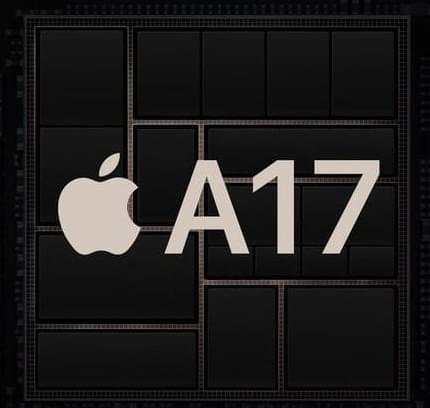
The A17 Bionic chip initially used in the iPhone 15 Pro and iPhone 15 Pro Max later this year will fundamentally differ from a version of the same chip set to be manufactured in 2024, a new rumor claims.
The A17 Bionic is expected to be Apple’s first chip manufactured with a 3nm fabrication process, resulting in major performance and efficiency improvements over the 5nm technique used for the A14, A15, and A16 chips. The initial version of the A17 Bionic chip will reportedly be manufactured using TSMC’s N3B process, but Apple is planning to switch the A17 over to N3E sometime next year. The move is said to be a cost-cutting measure that could come at the expense of reduced efficiency.

Many people love the Raspberry Pi (us included). Not only are the computing boards cheap, but you can do so much with them. Wild, wonderful projects spring up all the time with RPi boards as a central piece. The latest creation to catch our eye might just rank as one of the most astonishing: a truck transformed into a dot matrix printer.
As spotted by Tom’s Hardware, YouTuber Ryder Damen (who runs the channel Ryder Calm Down) uses a Raspberry Pi to control his homebrew “printer,” which involves a pickup truck, water, and a whole array of gear to spell out messages on the ground. Damen calls it “skywriting, but on the road.”
In the video, Damen explains how the idea came to be (watching trucks paint markers on the road), as well as the process of constructing the “printer” and the materials used. A plywood and a trailer hitch form the frame of the rig, with solenoids, valves, and hoses then mounted to the wood to serve as printer parts. The solenoids control the valves—when 12V current is applied to them, they open. Meanwhile, the hoses split the water flow from a central point (a pump and a bucket full of water) to each valve.
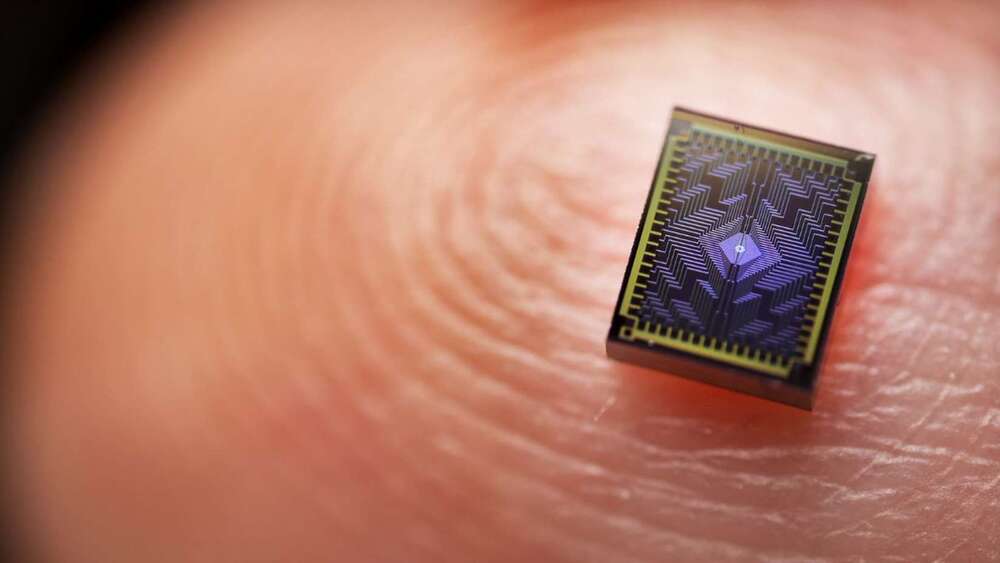
Intel – the world’s biggest computer-chip maker – has released its newest quantum chip and has begun shipping it to quantum scientists and engineers to use in their research. Dubbed Tunnel Falls, the chip contains a 12-qubit array and is based on silicon spin-qubit technology.
The distribution of the quantum chip to the quantum community is part of Intel’s plan to let researchers gain hands-on experience with the technology, while at the same time enabling new quantum research.
The first quantum labs to get access to the chip include the University of Maryland, Sandia National Laboratories, the University of Rochester and the University of Wisconsin-Madison.

Most of us don’t think of atoms as having their own unique vibrations, but they do. In fact, it’s a feature so fundamental to nature’s building blocks that a team of University of Washington researchers recently observed and used this phenomenon in their research study. By studying the light atoms emitted when stimulated by a laser, they were able to detect vibrations sometimes referred to as atomic “breathing.”
The result is a breakthrough that may one day allow us to build better tools for many kinds of quantum technologies.
Led by Mo Li, a professor of photonics and nano devices in both the UW Department of Electrical and Computer Engineering and the UW Physics Department, the researchers set out to build a better quantum emitter, or QE, one that could be incorporated into optical circuits.

“Learn to code.” That three-word pejorative is perpetually on the lips and at the fingertips of internet trolls and tech bros whenever media layoffs are announced. A useless sentiment in its own right, but with the recent advent of code generating AIs, knowing the ins and outs of a programming language like Python could soon be about as useful as knowing how to fluently speak a dead language like Sanskrit. In fact, these genAIs are already helping professional software developers code faster and more effectively by handling much of the programming grunt work.
Two of today’s most widely distributed and written coding languages are Java and Python. The former almost single handedly revolutionized cross-platform operation when it was released in the mid-’90s and now drives “everything from smartcards to space vehicles,” as Java Magazine put it in 2020 — not to mention Wikipedia’s search function and all of Minecraft. The latter actually predates Java by a few years and serves as the code basis for many modern apps like Dropbox, Spotify and Instagram.
They differ significantly in their operation in that Java needs to be compiled (having its human-readable code translated into computer-executable machine code) before it can run. Python, meanwhile, is an interpreted language, which means that its human code is converted into machine code line-by-line as the program executes, enabling it to run without first being compiled. The interpretation method allows code to be more easily written for multiple platforms while compiled code tends to be focused to a specific processor type. Regardless of how they run, the actual code-writing process is nearly identical between the two: Somebody has to sit down, crack open a text editor or Integrated Development Environment (IDE) and actually write out all those lines of instruction. And until recently, that somebody typically was a human.